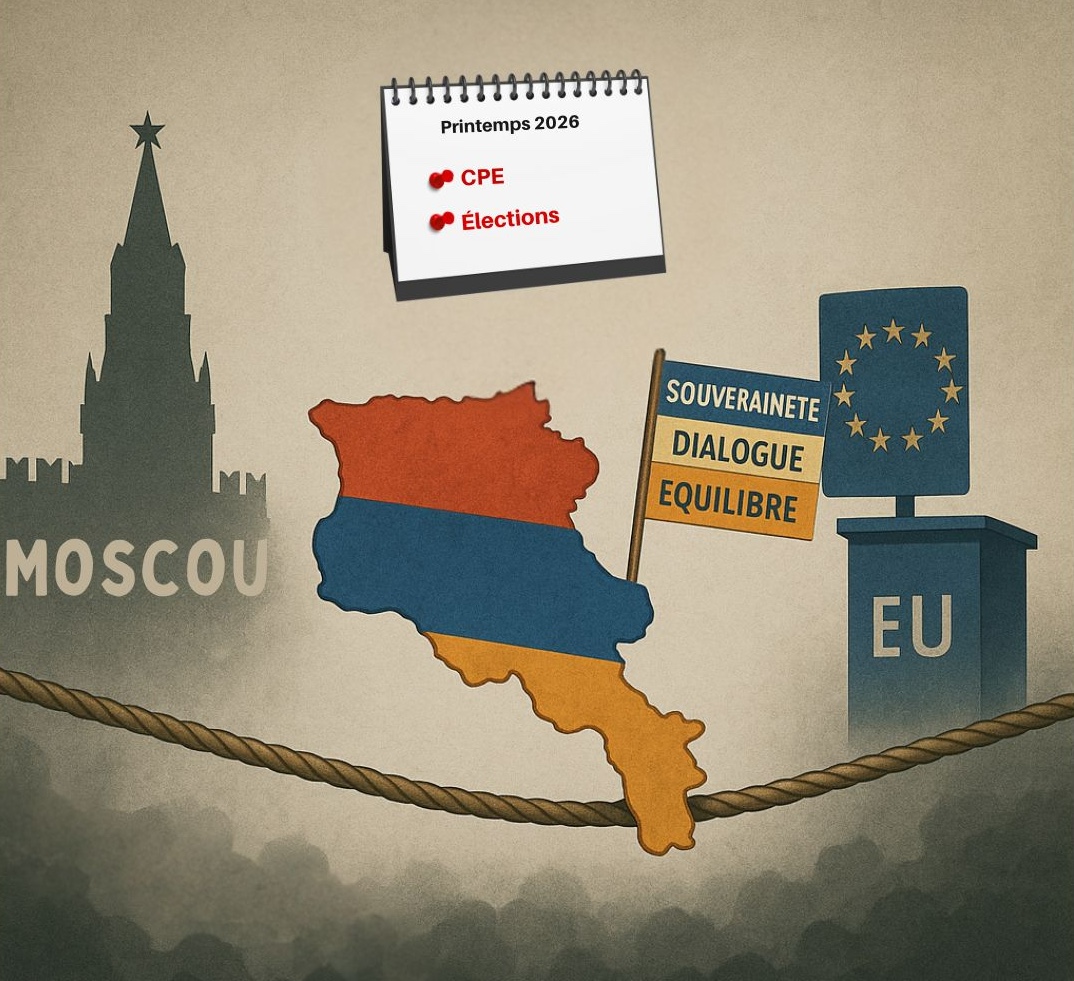
Russian Foreign Minister Sergey Lavrov paid a working visit to the Republic of Armenia on Wednesday, May 21. The trip drew intense attention because of the complicated relationship between the two countries. In essence, both foreign ministers acknowledged that Russia and Armenia disagree on nearly everything, yet they both recognise the need to prevent their relationship from deteriorating and preserve whatever fragile balance they currently have.
While Armenia is struggling to restore its sovereignty by diversifying its relations, partnerships and orientations, Russia is doing everything it can to keep Armenia in a situation of isolation, precariousness and uncertainty, counting on renewed pressure once it has finished the war against Ukraine. The battle for the sovereignty of the Armenian state is being played out in its relationship with Russia. In terms of timing, mark spring 2026 as a particularly important moment in this battle. On the one hand, the parliamentary elections in Armenia promise to be the scene of a debauchery of direct and indirect means of ‘social engineering’, much of which is in the hands of Russia or its ‘clients’. It was also the case in Georgia and Moldova in 2024. On the other hand, Yerevan announced on 23 May that it would host the 8th summit of the European Political Community. The EPC, an intergovernmental platform initiated in 2022 by France, brings together member states and their immediate neighbours to discuss a wide range of issues concerning their relations.
Cooperation Continues Despite Tensions
The diplomatic day began with a one-on-one meeting between Lavrov and his Armenian counterpart, Ararat Mirzoyan, at the Armenian Ministry of Foreign Affairs. It continued with broader discussions with the delegations, followed by a joint press conference. Lavrov then met with National Assembly President Alen Simonyan and Prime Minister Nikol Pashinyan.
At the press conference, Ararat Mirzoyan hailed a ‘constructive, comprehensive’ meeting and emphasised Armenia’s willingness to maintain an honest and effective political dialogue with Russia.
Mirzoyan noted deep and long-standing differences in interpretation on certain fundamental issues, particularly in the area of security. Nevertheless, the Armenian foreign minister rejected the idea of a ‘reformatting’ of relations with Russia, asserting that bilateral obligations remain in force. However, he expressed strong criticism of the functioning of the Collective Security Treaty Organisation (CSTO), recalling that Armenia had frozen its activities within the alliance due to the lack of a satisfactory response from its partners to Azerbaijan’s aggression against its sovereign territory in 2022.
The Russian minister, for his part, maintained that the CSTO and Russia had responded satisfactorily and in accordance with their obligations.
The Soviet legacy and the new deal that Yerevan wants with its neighbours
Mirzoyan reiterated that Armenia recognises Azerbaijan’s territorial integrity in accordance with the 1991 Alma-Ata Declaration, including the Nagorno-Karabakh region, and that this recognition must be reciprocated by Baku with regard to Armenia’s internationally recognised borders.
Lavrov, for his part, emphasised the strong historical and cultural ties between Armenia and Russia. He reaffirmed Moscow’s commitment to a regional resolution based on the active participation of the South Caucasus countries, supporting the upcoming ‘3+3’ meetings, which include the countries of the region along with Iran, Turkey and Russia. For Armenia, this format is relevant and important, provided that priority is given first to the inner circle of three (Armenia, Azerbaijan and Georgia) and only then to the three former empires.
Between internal pressure and diplomatic balancing act
Lavrov’s visit took place against the backdrop of a demonstration by the opposition party ‘For the Republic’ in front of the Ministry of Foreign Affairs.
When asked about this popular opposition, Mirzoyan responded with restraint, praising the development of Armenian democratic institutions while defending the decision to welcome Lavrov with the respect due to a historic partner. He recalled that Armenia had paid a heavy price during the Second World War and that its participation on May 9 parade in Moscow was a tribute to this collective memory, not a geopolitical statement.
Economic Relations: A Delicate Balance
Responding to questions about Armenia’s possible integration into the EU, the Armenian minister clarified: ‘Armenia has not submitted an application for membership of the European Union.’ He was keen to emphasise that, as things stand, there is no contradiction between cooperation with the EU and cooperation with the Russian-dominated Eurasian Economic Union, stating that Armenian foreign policy does not seek to create regional tensions.
The parties reaffirmed their commitment to constructive dialogue and the preservation of regional stability despite the differences of opinion that have emerged in recent years.
A precarious and temporary status quo, but one whose pragmatic virtues are undeniable.
